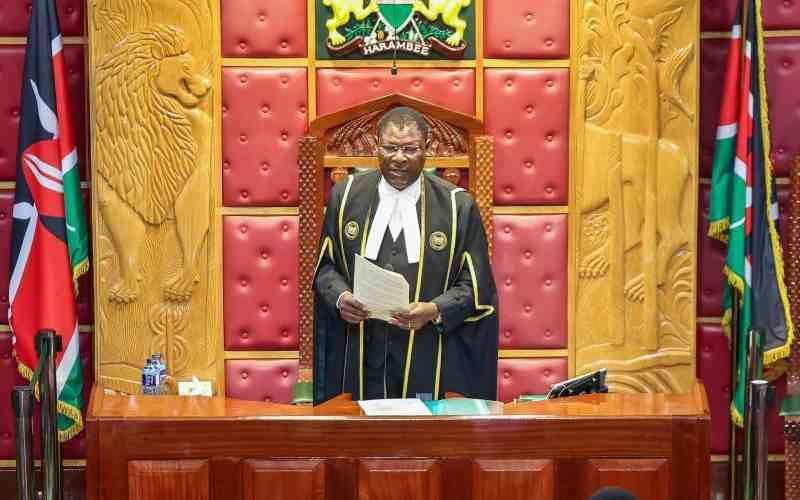National Treasury CS John Mbadi has said there is no legal basis to implement proposed one-off honorarium of Sh200,000 to former councillors who served less than four consecutive terms.
On Wednesday, the CS said following review of recommendations of a taskforce, established to look into the matter, the Attorney General, in an advisory dated May 8, 2023 concluded that there is no legal foundation for implementing the proposed one-off honorarium.
He said the conclusion was based on absence of a legal instrument anchoring such payment, the inconsistency of the proposal with established public service pension principles as well as a circular No. 13/94, which only recognises councillors with 20 years of continuous service as eligible for pension or gratuity.
“As such, implementing the recommendations – particularly for the 11,919 councillors who served fewer than four terms – would amount to creating a new benefit structure without necessary statutory basis. This would contravene principles of public finance management and expose the government to potential audit and legal risk,” Mbadi said.
The CS made the remarks before the Senate Committee on Labour and Social Welfare, chaired by West Pokot Senator Julius Murgor, to explain delayed pension for several government agencies. “We have very tight fiscal space and we are worried as National Treasury of opening floodgates for other people to start demanding, remember there are also former MPs who for some reasons have also been demanding, so where do we reach with this, is also a question but I leave it to policy makers,” he said. Mbadi also condemned failure to remit deductions for public servants, saying it is one of the major issues bedeviling the pension structure.
It is against this backdrop, he said, that the Government has resolved to integrate payroll system both for National and County Governments to cure such ills.
The CS said Ministries, Departments and Agencies (MDAs) have already been integrated and will use this system to pay this month, adding that county assemblies have been onboarded. However, he said there is still a pushback from the County Executives, trying to convince National Treasury to give them one year but the Ministry has since rejected their request.
“We have said no, we have to onboard them immediately because where we have the biggest challenge is the county executives and we have so many payrolls, some manual, others for casuals and you don’t even know which is the correct payroll. We want to integrate to cure some of these problems, it will cure the issue of ghost workers and where they deduct money and do not remit, and this is for the whole Government,” he insisted.
“Even some parastatals do the same, they deduct money from employees and fail to remit to pension schemes and SACCOs. It is a criminal act that should not be allowed to continue,” Mbadi said.
At the same time, Mbadi explained that the circumstances under which councilors served were markedly different from those of current Members of County Assembly (MCA)s.
According to Mbadi, councilors operated in a non-salaried, allowance-based system, under the old legal and policy frameworks, which lacked formal retirement provisions.
He insisted that any attempt to retrospectively compensate them without enabling legislation would set a legally untenable precedent. “In light of the Attorney General’s legal advisory and the prevailing fiscal and legal constraints, it is not feasible to implement the proposed honorarium in the absence of an enabling legal framework.
According to Mbadi, former councillors who meet the threshold set by Circular No. 13/94, who are about 328, may be considered for payment (if they were not paid), while the remainder may benefit from alternative social protection mechanisms such as the Inua Jamii programme, which provides support to elderly and vulnerable Kenyans irrespective of prior formal employment. Prior to the promulgation of the Constitution 2010, he said local representation was exercised through councilors under the now repealed Local Government Act, Cap 265, a framework which was succeeded by the office of the MCAs.
Stay informed. Subscribe to our newsletter
“Unlike MCAs, who are salaried and entitled to pension under structured retirement schemes, councilors served on a part-time basis and earned sitting allowances rather than a regular salary. This arrangement excluded them from participation in formal pension schemes such as the Local Authorities Provident Fund and the Local Authorities Pension Trust, which were intended for salaried officers of local authorities,” the CS explained.

























